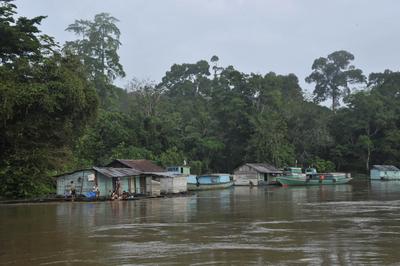Sustainable development emphasises a holistic, equitable and forward-looking approach to decision making at all levels — not just focusing on economic performance but also on the environmental and social aspects of development, including intra-generational and inter-generatonal equity. The concept was developed in the 1987 Brundtland Report, and re-affirmed at the Rio Earth Summit 1992. This year’s UNCSD marks the 20th anniversary of that summit.
Twenty years on, countries around the world must now demonstrate whether their development paths have upheld the principles of sustainable development, through rethinking their economic growth, advancing social equity and ensuring environmental protection at all levels.
According to many scholars, some progress toward achieving sustainable development is being accomplished, albeit very slowly. Reports show an increase in collaboration between state and non-state actors, which has brought about gradual but important changes, including the promotion, development and application of sustainability principles in the management of key commodities, including forestry (through the Forest Stewardship Council (FSC)), fishery (through the Marine Stewardship Council) and palm oil (through the Roundtable on Sustainable Palm Oil).
In Indonesia, prior to 2009, only 1.1 million hectares of forests were certified under the FSC, amounting to 2 per cent of the country’s production forests. Now, approximately 26 companies with a total 2.6 million hectares of forests are undertaking a rigorous process for FSC certification.
In addition to the Timber Legality Verification System (SVLK) implemented in 2009, which aims to verify the legality of all traded Indonesian timber products, forest certification is seeing Indonesia gradually move toward sustainable forestry practices. But, as those forests certified under FSC still make up only a small proportion of Indonesia’s total forests, achieving sustainability in this sector is still a significant challenge.
Progress has also been made in the prevention of biodiversity loss. In this sense, the Heart of Borneo (HoB) initiative can be seen as a test for Indonesia, Malaysia and Brunei in conserving and sustainably managing 22 million hectares of important forest and terrestrial ecosystems.
However, promoting conservation and sustainable forest management on such a significant scale requires not only political willingness but also concrete incentives and practical solutions on the ground.
Another immmediate political challenge for the HoB initiative is that a development policy released by the same government, the Master Plan for the Acceleration and Expansion of Indonesia’s Economic Development (MP3EI), may contradict efforts to protect, conserve and sustainably manage its forests and biodiversity in this area.
A recent discussion among scholars, high-ranking government officials, business practioners and NGO activists in Jakarta, facilitated by the Paramadina Graduate School of Diplomacy, agreed that the MP3EI may overlook environmental persectives and parameters.
If the conflict is not addressed, some actors involved in land-use activities in Borneo may use the economic development master plan as an excuse to continue their business-as-usual activities.
When it comes to creating incentives and developing practical solutions, the Rio+20 conference lists ‘green economy’ as one of its two major themes. The ‘green economy’ approach will presumably provide a platform for countries or other entities to address threats to sustainable developmant and conservation, and improve enabling conditions and propose solutions at a practical level.
The HoB initiative, at the Rio+20 conference, is launching a report entitled ‘Investing in Nature for a Green Economy’. This report is intended to show that the initiative concretely and seriously tackles existing and future threats, particularly from unsustainable land-use activities, and further improves enabling conditions, namely good economic policies that create positive incentives, good governance, clear land tenure and environmentally friendly sectoral development.
By using the ‘green economy’ concept, it is expected that the initiative can transform economic growth in the area, particularly through shifting investments — public and private, domestic and international — toward emerging green sectors and the greening of existing sectors, complemented by changes to unsustainable consumption patterns.
Natural capital, especially biodiversity, is under threat at the global level. In its State of Biodiversity of Asia and the Pacific (2010), UNEP ranked Indonesia second after Australia as having the most threatened plant and animal species in the region. The HoB initiative is an important model to demonstrate that development can take place in biodiversity-rich areas without further threatening fragile resources.
For developing countries like Indonesia and its neighbours, reforming and balancing their development pathways is a Herculean task. It is how to move forward with this challenge that is now being hotly discussed at Rio.
Fitrian Ardiansyah is a PhD candidate at the Australian National University, and the recipient of the Australian Leadership Award and Allison Sudradjat Award.

